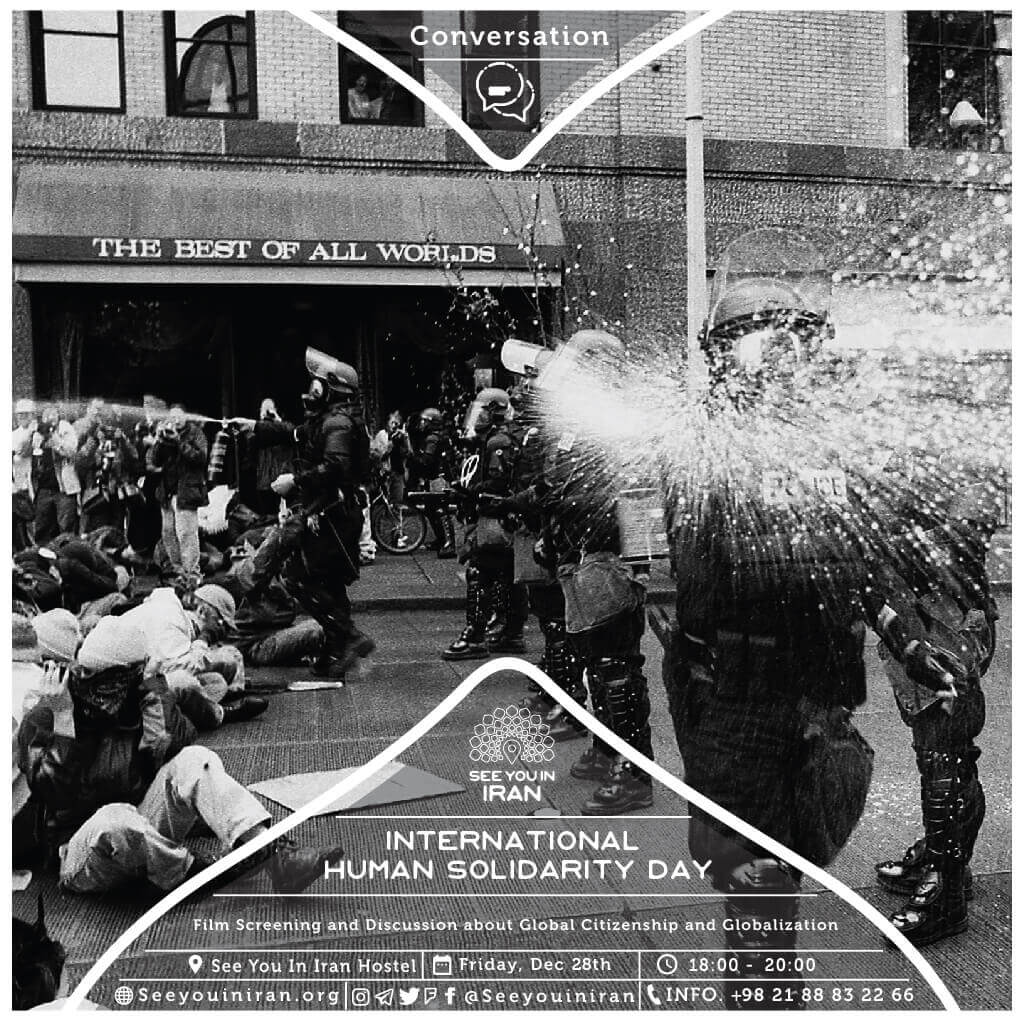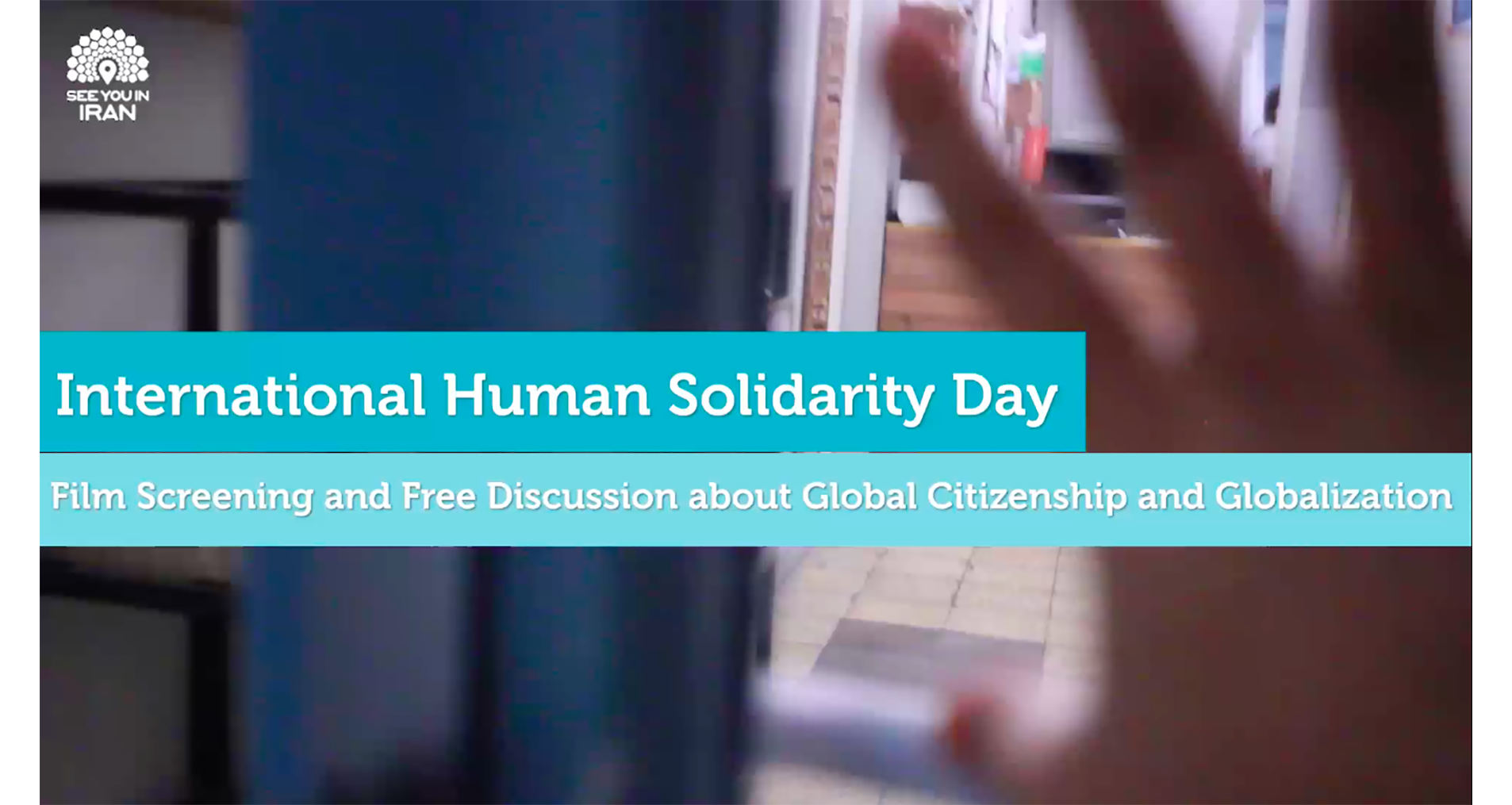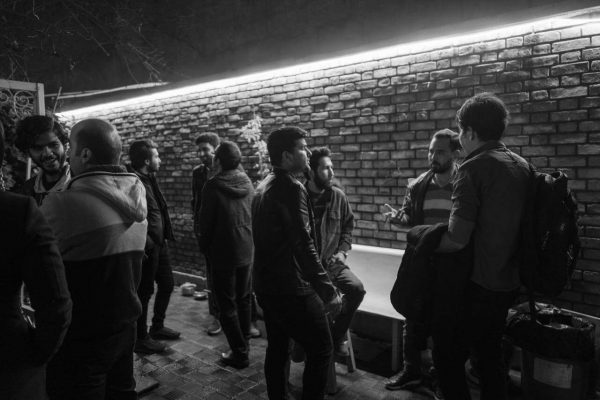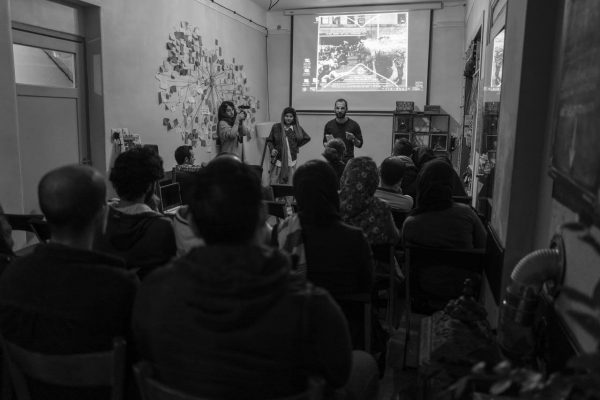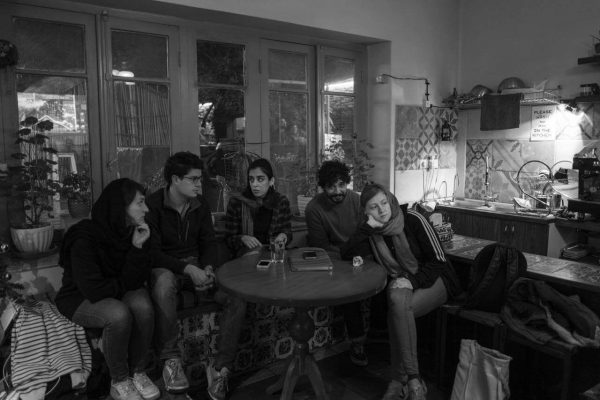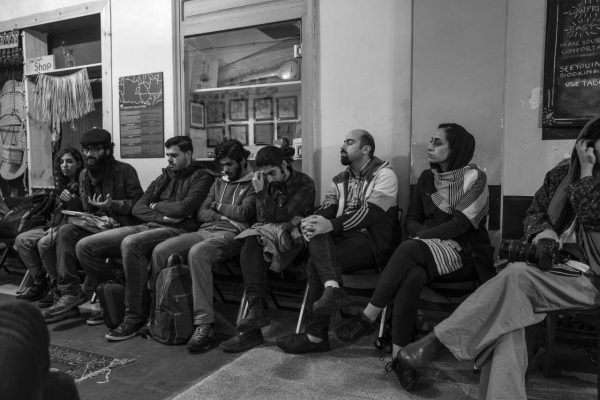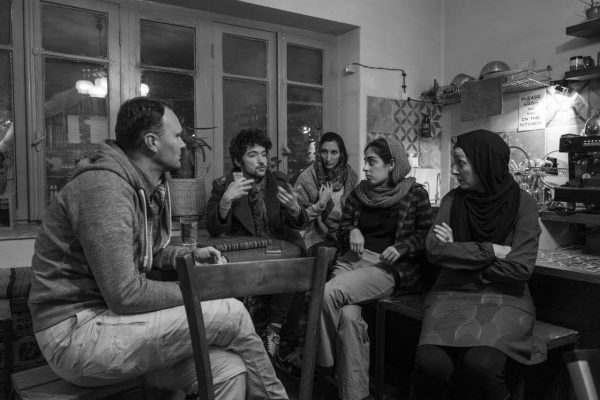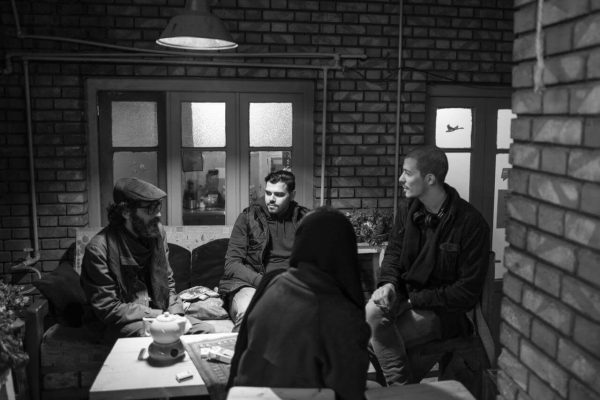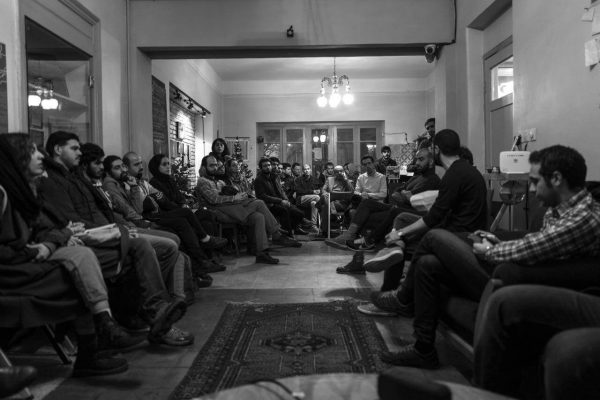Crucial Question: Solidarity with and against whom?
One of the major factors that averts the kind of change which can result in a dialogue between the people in the global scale currently, is the pre-existing discourse of capital.
In order to develop solidarity, the effects of capitalistic components on our day to day lives must be addressed. What has taken place after almost 5 decades of globalization is the relocation of executive branches of major international corporations to regions that cheap labor is abundant and taxes are minimal. When an individual becomes aware of the impact of globalized capitalism in their everyday life is when they start taking steps towards solidarity. See You in Iran’s global orientation towards connecting people beyond statist efforts and in order to build a more divers platform on an international basis to discuss different approaches to solidarity On December 28th, See You in Iran Cultural House, a week after the International Human Solidarity Day, organized an event during which a documentary called “This is What Democracy Looks Like” was screened that pictures the protests of 1999 against the capitalist globalization and the increasing dominance of corporations over almost all aspects of human existence. A discussion thereafter occurred revolving the concept of human solidarity.
The International Human Solidarity Day coincided with United Nations pledges to alleviate poverty, starvation and diseases through sustainable development. The statement begs the question: How has human suffering increased throughout past decades? To what extent is capitalist corporatism responsible for disparities between Global North and South? It is time to revise the strategies of resistance so the term solidarity can be modified accordingly.
In order to form solidarity, components of capitalism must be recognized as well as their effects on our day to day lives. Activism is of great significance whereas it is inconceivable that apathy can lead to any kind of change. When an individual becomes aware of repels of globalization in their everyday life is when they start taking steps towards solidarity. However it is critical to keep in mind that solidarity must remain as an action rather than a reaction so as to keep its discourse intact. Conventional ways of identification (race, gender, occupation, social class, etc) will result in further division. Similarities must be recognized and differences must be appreciated amongst all human beings and it starts by noticing who you are coexisting with, regardless of their status. Another world is possible.
See You in Iran organization is based on cultural encounter amongst people of all backgrounds, a space in which, through direct dialogue our members can form their own perception of each other free of presumptions. Having the International Human Solidarity Day in mind, we hope to have taken another step in that direction.
همبستگی با چه کسی در مقابل چه چیزی
شناخت مولفههای نظام سرمایهداری و تاثیر آنها بر زیست روزمره همه ما از ملزومات ایجاد همبستگی است. جهانیسازی منتج شده از نظام سرمایهداری در طول پنج دهه اخیر نه تنها در از بین رفتن اختلاف فاحش ثروت در میان کشورهای شمال و جنوب اثری نداشته بلکه باعث استثمار نیروی کار ارزان در کشورهای جنوب شده است. حرکت به سوی همبستگی زمانی امکانپذیر میشود که افراد نسبت به تاثیر جهانیسازی در زندگی روزمره خود آگاه شوند. روز جمعه، ۷ دی ماه، یک هفته بعد از روز جهانی همبستگی با پخش مستند This is What Democracy Looks Like که حرکتی اعتراضآمیز نسبت به سیاستهای سازمان تجارت جهانی (WTO) در ۱۹۹۹ در سیاتل آمریکا را تصویر میکند، در خانه فرهنگی See You in Iran به بحث و تبادل نظر درباره مسئله جهانیسازی و آثار آن بر زندگی روزمره پرداختیم.
سازمان ملل در روز جهانی همبستگی با انتشار بیانیهای متعهد به از بین بردن فقر، گرسنگی و بیماری از طریق توسعه پایدار شد. نکته حائز اهمیت اما در نحوه بوجود آمدن مسائل پیشگفته است که این بیانیه آن را نادیده میگیرد. سوالاتی از قبیل: تا چه میزان رنج انسانی در دهههای اخیر افزایش یافته است؟ نظام سرمایهداری و شرکتهای فراملی در نهادینه کردن دوگانه شمال و جنوب و شدت بخشیدن به اختلاف میان این دو چه نقشی داشتهاند؟
اساساَ همانقدر که کنشگری در شکلگیری حرکت به سوی همبستگی عاملی پراهمیت است، انفعال نسبت به اثرات پدیده جهانیسازی در زیست روزمره میتواند مخرب باشد. اما برای رسیدن به اشکال موثر همبستگی نباید آن را به عنوان نوعی عکسالعمل تعریف کرد بلکه همبستگی باید خود کنشی برای به وجود آوردن گفتمانهایی آلترناتیو باشد. تقسیم شهروندان جهان به هویتهای گوناگون و تاکید بر جداسازیهای اینچنینی موجب افزایش فاصله میان ما شده و از بوجود آمدن حرکتی موثر جلوگیری میکند. البته که لزوم شناخت شباهتها و پذیرش تفاوتها در میان انسانها، فرای طبقهبندیهای قراردادی برای ایجاد همبستگی امری بدیهی مینماید.
مجموعه See You in Iran در تلاش است تا برای برقراری ارتباط بیواسطه و فارغ از تعاریف پیشساخته فرهنگی و اجتماعی فضایی فراهم کند تا افراد از هرکجای جهان قادر به شکل دادن تصویری حقیقی نسبت به یکدیگر باشند. امید است در سالگرد روز جهانی همبستگی توانسته باشیم قدمی در رسیدن به این هدف برداریم.
What to Expect
“While corporations build empires across borders we are fenced in, we are taught to fear each other. Isolation leaves us powerless. Corporate power can only build its global network by dividing us.” Capitalism institutions such as World Trade Organization (WTO), International Monetary Fund (IMF) and the World Bank (WB), since their creation have taken part in devaluating numerous workers rights regulations. These policies are aligned with the “harmonious globalization” of capitalism and imperialism in the world. In November 1999, The Battle of Seattle which was the first momentous resistance to capitalist globalization occurred in downtown Seattle where the WTO summit was taking place. On December 28th, See You in Iran Cultural House, in the fourth night of its migration event series and to coinciding with Human Solidarity Day, is organizing a screening of the movie “This is What Democracy Looks Like” which depicts the Battle of Seattle and the resistance alike throughout the world in solidarity and against corporatocracy and a discussion about the issue will follow thereafter. We invite anyone who is interested in migration and the subject of capitalism and globalization, to join us at the See You in Iran Cultural house in Tehran this Friday December the 28th at 6:00 pm.
Check other events here: Cultural House
